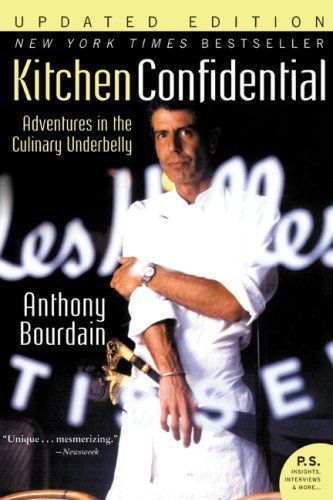
Kitchen Confidential Adventures in the Culinary Underbelly
A deliciously funny, delectably shocking banquet of wild-but-true tales of life in the culinary trade from Chef Anthony Bourdain, laying out his more than a quarter-century of drugs, sex, and haute cuisine—now with all-new, never-before-published material
Reviews
mimi nguyen@nakedguacamole
BC Hark@vaporvisions
Derek Graf@derekgiraffe
Patrick Book@patrickb
Jb@jbr1992
annalyse! @a_nnalyse
Bailee Strong@bailees
y✦@y4ndsl
paula@paubianco
C@chembotss
milly@kissoff
Kay so Queso@kisoh
Aamna@aamnakhan
van @vans_bookwrld
tori@tttori
Madison Haymes@madihay
min@maarlowes
John Lopiano Jr.@jlopiano44
Modith D.@enmei
Ali Angco@aliangco
Katherine Yang@bookwormgirl910
Gavin@gl
Bouke van der Bijl@bouk
Andrew Louis@hyfen
Highlights
kata@katacaramel
kata@katacaramel
kata@katacaramel
Essence@iridessence
y✦@y4ndsl
y✦@y4ndsl
Kay so Queso@kisoh
Page 300
Kay so Queso@kisoh
Page 264
Kay so Queso@kisoh
Page 172
Kay so Queso@kisoh
Page 56
Kay so Queso@kisoh
Page 56
Kay so Queso@kisoh
Page 49
min@maarlowes
min@maarlowes
min@maarlowes
Piet Terheyden@piet
Piet Terheyden@piet
Piet Terheyden@piet
Piet Terheyden@piet
Piet Terheyden@piet
Piet Terheyden@piet
Piet Terheyden@piet
Piet Terheyden@piet